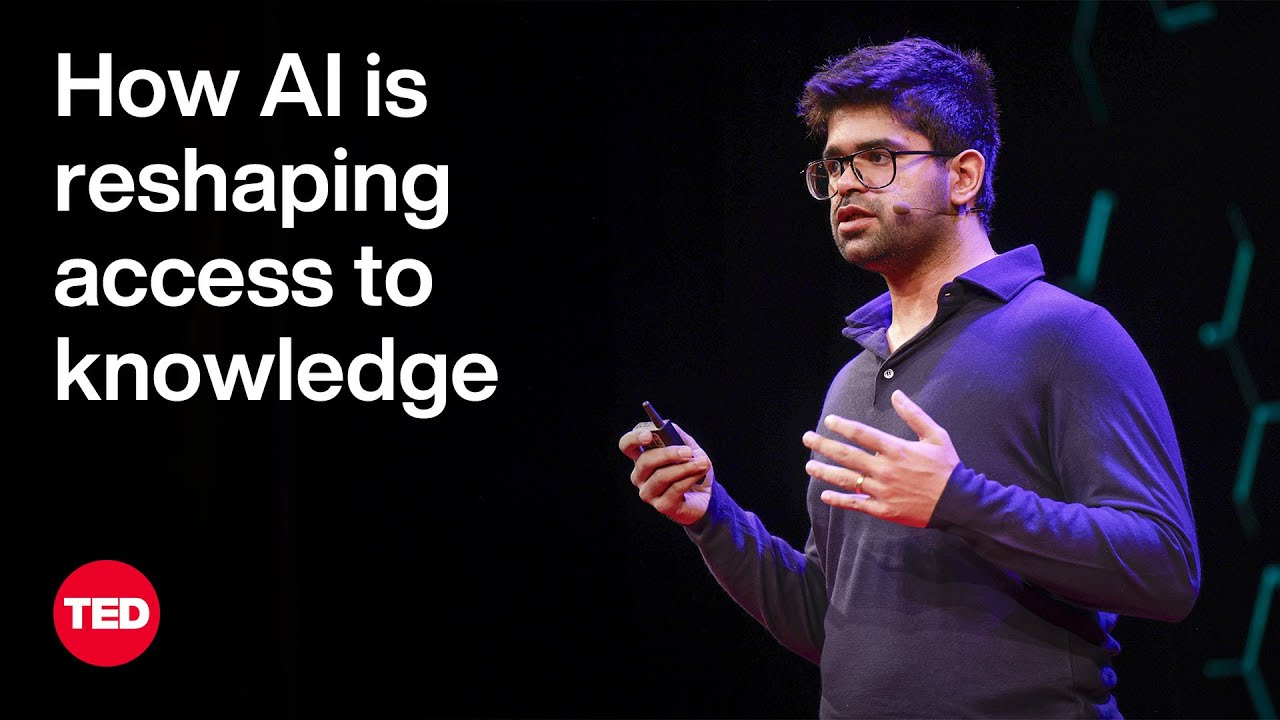In his TED talk, Aravind Srinivas explores how AI can enhance human inquiry by providing well-researched answers to complex questions, fostering a cycle of relentless questioning and learning. He envisions a future where AI democratizes access to information, empowering individuals from all backgrounds to engage in meaningful exploration and expand their knowledge.
In his TED talk, Aravind Srinivas discusses the evolving role of artificial intelligence (AI) in answering questions that humanity has yet to consider. He begins by highlighting his background as an academic with a PhD in AI from Berkeley, contrasting himself with the typical tech founder narrative. Srinivas notes a recent decline in startup formation among PhDs, yet he observes a growing presence of academics in technology, particularly in AI. He references Larry Page’s early vision of AI as the ultimate search engine, emphasizing that AI’s future lies in understanding and answering complex human queries.
Srinivas emphasizes the importance of relentless questioning, a practice central to academic inquiry and human progress. He cites the Socratic method, which encourages continuous questioning as a means to gain wisdom. This relentless curiosity is a uniquely human trait, allowing individuals to seek deeper understanding and knowledge. He argues that AI can enhance this process by providing well-researched answers that lead to further questions, thus fostering a cycle of inquiry and learning.
The speaker shares his personal experience of founding Perplexity, an AI-driven platform designed to answer complex questions. He recounts his own struggles with traditional search engines, which often left him overwhelmed by information without clear answers. By creating a tool that provides trustworthy, citation-backed responses, Srinivas and his co-founders aimed to empower users to ask better follow-up questions and expand their knowledge base.
Srinivas posits that AI has the potential to democratize access to information and answers, breaking down barriers that previously limited knowledge to those with resources or connections. He envisions a future where everyone, regardless of their background, can access the same high-quality answers, leading to a profound shift in human history. This shift could enable individuals from all walks of life to engage in meaningful inquiry and exploration.
In conclusion, Srinivas asserts that the future of technology and AI is intrinsically linked to human curiosity and the questions we choose to ask. As AI continues to improve in its ability to provide answers, the emphasis should be on fostering an environment where relentless questioning thrives. He expresses excitement for the possibilities that lie ahead, encouraging the audience to embrace their curiosity and consider the next questions they will explore.
